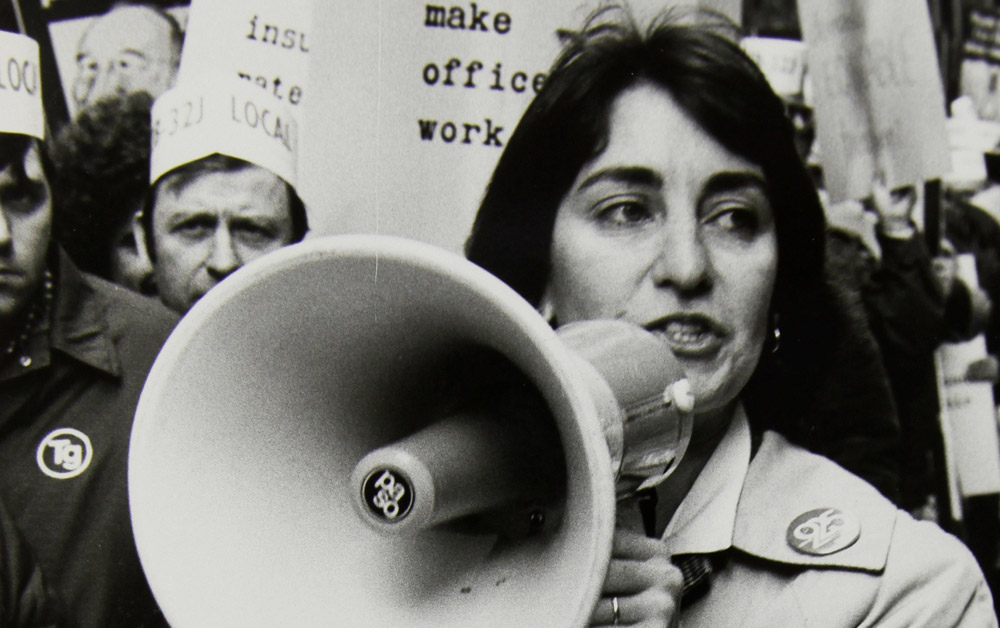Throughout Julia Reichert and Steve Bognar’s “9to5: The Story of a Movement,” there are a number of bullet points straight from the organizing playbook of the working women’s coalition — lists of sensible demands to make of employers, tips on building trust within an organization, and how to give a speech may seem obvious, but they are the kind of practicalities that are usually overlooked until they are needed most, giving clarity to group efforts to enact change. These nuggets of knowledge are placed against bold, colorful backgrounds throughout that make them impossible to miss, and they surely don’t come cheap, either in monetary terms when the women that started 9to5 one had to pool their money to send one of their members to the Chicago-based school for organizers The Midwest Academy to get educated, or in how Reichert and Bognar present them as part of an ongoing narrative, recounting the history of the female activists fighting for equality in the workplace during the 1970s and 1980s, yes, but actively giving the tools to those who are experiencing systemic injustice in any way to take on their own battle.
If this sounds like homework, it never feels that way in the capable hands of the directing duo behind “American Factory,” who find that the women of 9to5 share their war stories with good humor, surely necessary in order to withstand the slings and arrows of the misogyny thrown their way at every turn as they built up a nationwide push for equality from a group of 10 clerical workers at Harvard University. An opening salvo in which members recount how they were at first discouraged from working at all in order to take their traditional place at home, followed by greater trespasses such as racism and sexual harassment prepares one well for a film which may document the growth of the organization, but also the unfortunately more sprawling kudzu of issues they face, from getting employers with exclusively male management to acknowledge pay disparity to why their demands include tampon machines in the restroom.
It isn’t just the activists who have learned how to refine their message and get the most out of their group when it seems clear that Reichert, who’s been devoted to documenting the labor movement since 1976’s “Union Maids,” surely knows throughout the right questions to ask to give an understanding of how successful groundswells happen. The film operates at a rapid clip to keep pace with the galvanizing effect 9to5 had on women across the nation, but makes the time to illuminate all the smaller-scale strategies that strengthened the movement from Atlanta organizer Verna Barksdale’s brilliant idea to pair older women with younger women and Black women with white women to see one another’s commonalities and the attention paid to holding nurturing luncheons where things could get personal quickly. “9to5” is bound to have a similar effect on those watching it when the film flows like a casual conversation, and rather than linger on the pain from various transgressions that inspired action for these women, it celebrates the collective might they had after sharing their experiences with one another in order to recognize they were not alone in their struggle, ultimately handing that power over to the viewer in a way that’s as inspiring as it is generous.
“9 to 5: The Story of a Movement” will be streaming through DOC NYC from November 11th through 19th.




